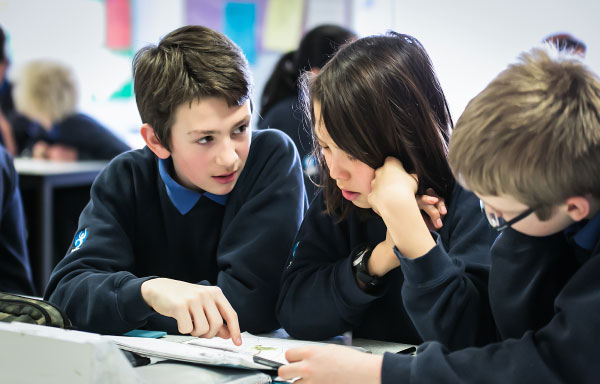Big fish, small pond

It’s that time of year again when Year 6/P7 pupils start to look and feel like they are ‘outgrowing’ primary school. Many are more than ready for the transition ahead, and the independence that secondary school brings.
For children with SEND, transitions can bring with them a wide range of conflicting emotions and anxieties. Moving on may feel like an exciting new chapter, but it can equally feel daunting and overwhelming. Being a ‘big fish’ in a small, familiar pond is a comfortable place to be. It may have taken years to find this safe and secure environment, in which to thrive: it’s no wonder so many parents and children alike will dread the idea of ‘starting all over again’.
Of course, both primary and secondary schools are increasingly thinking about this important time and putting into place ways that children can transfer ‘what works’ with them into their new schools. Taster days, social events, orientation, and buddy systems all support a smooth transition. But what else can primary schools, and secondary schools do, to support those children with SLCN?
Talk about how awesome they are!
At times of uncertainty and transition, it’s so important to reflect on what makes a child the unique and awesome person that they are. Offering the opportunity for peer or teacher feedback can help a child to realise that they have many strengths and can move forward to the next stage with optimism.
Agree what works
Agreeing what works to support a child’s needs, starts with the acknowledgement that those needs exist. This stage is undoubtedly easier if a child’s needs are known, but also must be considered for those who are likely to struggle but do not have a formal or known difficulty.
Secondary school is all about developing independence skills – in learning, and in living. This is a great time to talk about what helps that child to do their best in school. This is sometimes a conversation that we don’t think to have with children, but it can often be an enlightening and game-changing experience. For children who don’t yet have this level of insight, it is useful to start to explain what you have noticed. For example: “I noticed that you concentrated much better when the video showed you what to do, as well as using words – I wonder why that helps you...”
Share it
Once you’ve agreed what works, share it, with the child’s consent, with the key people in their new school. Our Secondary Language Link speech and language therapy package includes a fantastic “Communication Contract”, where a student can identify what they find difficult, and what others can do to help. Great to share with teaching and pastoral staff who can then help support them in school using the strategies that the student has identified.
Connect
Keeping in touch with new classmates through chat groups, online games and face-to-face meet-ups over the summer means that there are a few more familiar people in the class when pupils start secondary school.
Dry runs
Catching the bus? Navigating a new building? It’s time to start practicing. Looking at timetables and maps and getting familiar with the route will help to reduce anxiety. Think about ‘what if’ questions… What if I get lost? What if I miss the bus? Make plans for these eventualities and talk them through.
Celebrate
What a special time in life – growing up and moving on. It might be daunting – for parents and for children – but don’t forget to celebrate this very special milestone.
Read more about transition here:
Top Transition Words to Teach Your Children Going into KS3
Transitioning from one place to another - top tips
Find out more about how Secondary Language Link can help your school here.